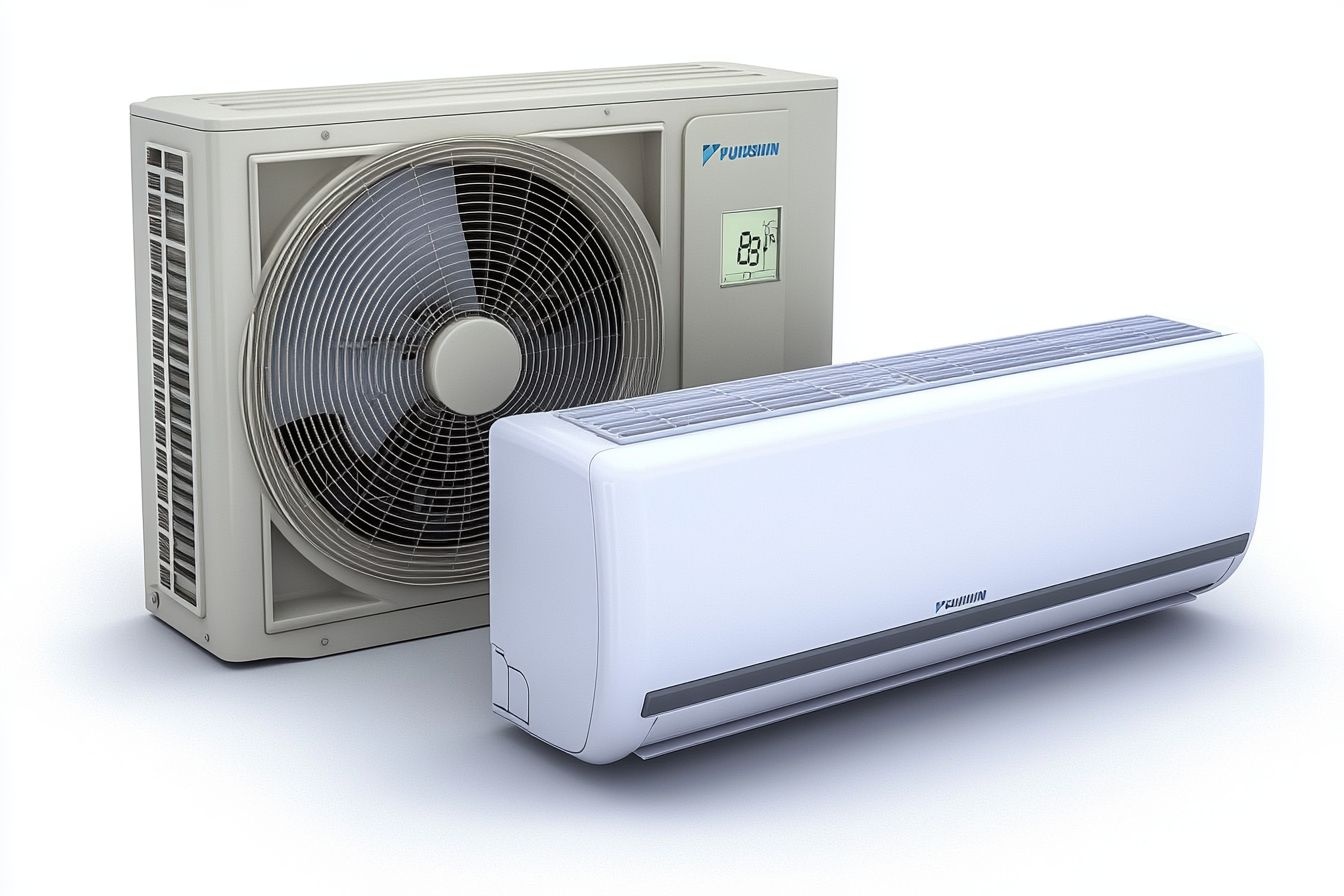Ductless Air Conditioners: The Efficient Cooling Solution for Your Home
Ductless air conditioners have become increasingly popular as an efficient and versatile cooling solution for homes and businesses alike. These systems, also known as mini-split air conditioners, offer a range of benefits that make them an attractive alternative to traditional central air conditioning or window units. In this article, we'll explore the features, advantages, and considerations of ductless air conditioning systems to help you determine if they're the right choice for your cooling needs.

The outdoor unit contains the compressor and condenser, which work together to cool the refrigerant. This cooled refrigerant is then pumped to the indoor unit(s) through the small conduit. The indoor unit, typically mounted on a wall or ceiling, then blows air over the cold coils containing the refrigerant, cooling the room efficiently.
Unlike traditional central air conditioning systems, ductless air conditioners don’t require extensive ductwork throughout your home. This makes them an ideal solution for older homes without existing ductwork, additions to homes, or specific rooms that need extra cooling.
What are the benefits of ductless air conditioning?
Ductless air conditioners offer several advantages over traditional cooling systems:
-
Energy Efficiency: Ductless systems are highly efficient, as they don’t lose cooled air through ductwork. This can lead to significant energy savings and lower utility bills.
-
Zoned Cooling: With multiple indoor units, you can create different temperature zones in your home, cooling only the areas you’re using and further improving energy efficiency.
-
Easy Installation: Without the need for ductwork, installation is typically quicker, less disruptive, and more flexible than traditional systems.
-
Improved Air Quality: Ductless systems often include advanced filtration systems that can help remove allergens and other pollutants from your home’s air.
-
Quiet Operation: The indoor units of ductless systems are generally quieter than window air conditioners or central air systems.
Are ductless air conditioners portable?
While ductless air conditioners are not typically considered portable in the same way as standalone portable air conditioners, they do offer a degree of flexibility. The indoor units can be relatively easily relocated if needed, though this would require professional assistance to disconnect and reconnect the system components.
For those seeking a truly portable cooling solution, there are portable air conditioners available on the market. These units are designed to be moved from room to room and typically only require a nearby electrical outlet and a way to vent hot air, usually through a window.
How do ductless systems compare to other cooling options?
To help you understand how ductless air conditioners stack up against other cooling options, let’s compare them to some common alternatives:
| Cooling System | Energy Efficiency | Installation Complexity | Zoned Cooling | Typical Cost Range |
|---|---|---|---|---|
| Ductless Mini-Split | High | Moderate | Yes | $3,000 - $8,000 |
| Central Air | Moderate | High | Limited | $3,500 - $7,500 |
| Window Units | Low to Moderate | Low | Yes | $150 - $500 per unit |
| Portable AC | Low | Low | Yes | $250 - $700 per unit |
Prices, rates, or cost estimates mentioned in this article are based on the latest available information but may change over time. Independent research is advised before making financial decisions.
As you can see, ductless systems offer a good balance of energy efficiency and zoned cooling capabilities. While the initial cost may be higher than some alternatives, the long-term energy savings and comfort benefits can make them a worthwhile investment for many homeowners.
Is a ductless air conditioner right for your home?
Deciding whether a ductless air conditioner is the best choice for your home depends on several factors:
-
Home Layout: If you have a home without existing ductwork or with areas that are difficult to cool with a central system, ductless AC might be ideal.
-
Cooling Needs: If you want the ability to cool specific areas independently, a ductless system’s zoning capabilities could be beneficial.
-
Energy Efficiency Goals: If reducing energy consumption and costs is a priority, the high efficiency of ductless systems is appealing.
-
Budget: While the initial cost can be higher than some alternatives, consider the long-term savings on energy bills.
-
Aesthetics: Ductless systems require indoor units to be visible in your living spaces, which may not appeal to everyone.
Ductless air conditioners offer an efficient and flexible cooling solution for many homes. Their ability to provide zoned cooling without the need for extensive ductwork makes them an attractive option for both new construction and existing homes looking to upgrade their cooling systems. While they may require a higher initial investment, the potential for energy savings and improved comfort can make ductless air conditioners a smart choice for keeping your home cool during the hot summer months.






